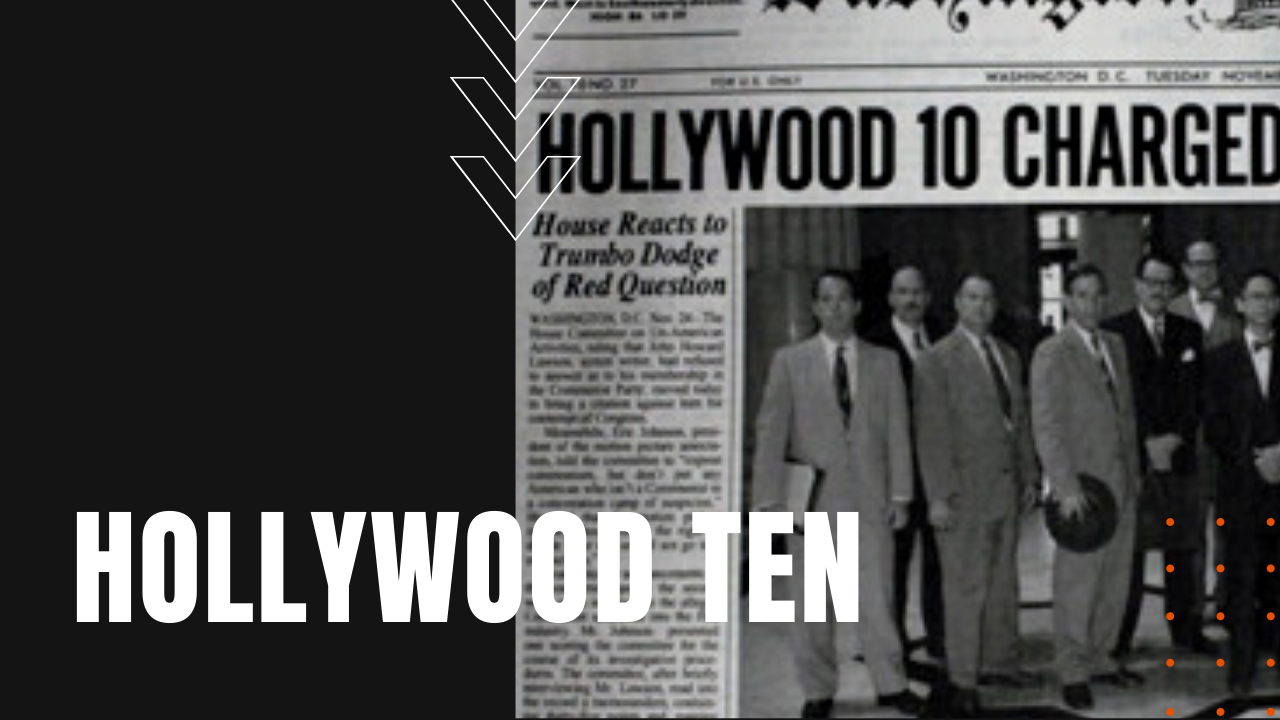Hollywood Ten: Communism, Defiance, and Blacklist

Beginning in the late 1940s and continuing through most of the 1950s, the House Un-American Activities Committee, led by such anti-communist notables as Joseph McCarthy, was seated to investigate allegations of communist subversion in the U.S. during the opening years of the Cold War.
The committee aimed much of its focus on the Hollywood film industry, which was known for communist sympathies during the hardscrabble years of the Great Depression, leading committee members to believe that lingering communist support in the industry could become the birthing ground for subversive propaganda weaved into the storyline of American movies.
Who Were the Hollywood Ten?
Although little evidence exists of a Socialist agenda in Hollywood films of the time, 40 Hollywood writers, directors and actors were subpoenaed to appear before the Committee, and while the majority sought career-saving leniency through cooperation, 10 writers and directors openly challenged the committee’s basic intentions behind their witch hunt investigations.
Not only did the men refuse to cooperate with the committee’s hearings, but they openly denounced the proceedings as a sacred violation of their first amendment rights, which gives all Americans the right to support any political party or ideology of their choosing. “I am not on trial here,” screenwriter John Howard Lawson testified in the House chamber. “This committee is on trial.”
The Hollywood Ten would pay dearly for their belligerence when each was tried for contempt of congress. All ten were sentenced to a year in prison and fined $1,000.00, while Edward Dmytryk eventually turned government witness, pointing the finger at 20 Hollywood colleagues he claimed to affiliations with the communist party.
Hollywood Blacklist
Fearing that radical politics would turn the movie-going public against Hollywood films, studio executives blacklisted the Hollywood Ten—with the exception of Dmytryk—promising the House Un-American Activities Committee that no persons with communist affiliations would ever again find employment in the industry.
That said, many of the Hollywood Ten writers continued to produce screenplays for Hollywood films under pseudonyms, including Dalton Trumbo, who wrote “The Brave One” under the pen name Robert Rich, which earned him an academy award in 1957 for Best Screenplay.
The Hollywood Red Scare and blacklist would continue to expand throughout the 1950s, finally losing focus with the advent of the 1960s.
